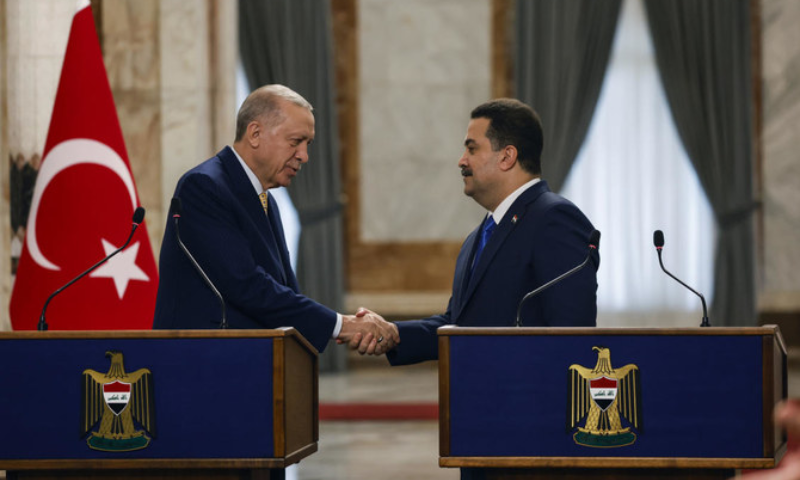BAGHDAD: Turkish President Tayyip Erdogan said on Tuesday that he believes Iraq recognizes the need of eliminating the Kurdish PKK militia and is willing to take action towards this goal. Erdogan’s remarks followed his recent talks in Baghdad and Irbil, marking the first visit by a Turkish leader to Iraq since 2011.
Years of tension between Turkey and Iraq have been exacerbated by Ankara’s military operations against PKK militants based in northern Iraq. However, Erdogan expressed optimism about a new phase in bilateral relations, emphasizing cooperation against militants and the enhancement of economic ties through a newly proposed corridor.
During his flight back from Iraq, Erdogan underscored Turkey’s commitment to combat terrorism within the framework of international law. He welcomed Baghdad’s recent designation of the PKK as a “banned organization” and expressed hope for tangible outcomes from this decision.
The PKK, recognized as a terrorist group by Turkey, the US, and the European Union, initiated armed conflict against the Turkish state in 1984, resulting in significant casualties over decades of insurgency. While the conflict initially centered in southeastern Turkey, it has increasingly shifted to the mountainous regions of northern Iraq’s semi-autonomous Kurdistan.
Erdogan emphasized the importance of Iraq taking a decisive stance against threats emanating from its territory, asserting that eliminating the PKK would also benefit Iraq. He said that discussions on combating the PKK took place during his talks in Irbil, highlighting the need for joint efforts in addressing the security challenge.
Addressing Iraq’s water needs, Erdogan acknowledged Turkey’s own water scarcity and emphasized the necessity of cautious steps and long-term planning amid changing climate conditions. He noted the significance of finding common ground through mutual evaluations to ensure the sustainable use of water resources.
On Monday, Turkey and Iraq reached agreements on a strategic framework covering security, trade, and energy, as well as a decade-long deal on water resource management.























